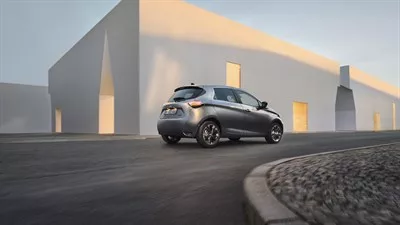The electric vehicle market in France has shown notable progression with plugin EVs securing a 27.9% market share for March, which is an increase from the previous year’s 25.4%. Specifically, the sales for fully electric vehicles (BEVs) have risen by roughly 11% year-over-year (YoY), while plugin hybrid electric vehicle (PHEV) sales saw a 4% growth. In contrast, the total automotive market experienced a slight decrease in volume, with 180,024 units sold, falling short of the average seasonal norm established in the years leading up to the pandemic.
Dissecting the figures, we find that BEVs accounted for 18.9% and PHEVs for 9.0% of the March share in France. These figures represent a slight uptick from the previous year’s combined share of 25.4%, with 16.8% BEVs and 8.6% PHEVs. Despite changes in the calendar resulting in two fewer working days compared to last year, the EV market’s growth has remained resilient when adjusted for this.
Government initiatives like the “social leasing” program have propelled this growth by encouraging lower-income households to adopt BEVs. This program triumphantly closed six weeks after launching, exceeding expectations by facilitating 50,000 leases. Companies like Stellantis and Renault Group were pivotal in this endeavor, but questions remain about the sustainability of these boosted figures following delivery completions and program conclusion.
Most Popular Electric Vehicles in France
Maintaining a robust lead, the Peugeot e-208 was the bestselling BEV, with 3,767 units sold, marking its third consecutive month at the top. Other popular models included the Tesla Model Y, which claimed second place, and the Fiat 500e, which secured third. The Renault Twingo’s surge to fourth from ninth place could potentially be linked to the impact of the social leasing program. Still, even models at the end of their production life, such as the Renault Zoe, witnessed a rise in sales before their farewell.
New entrants such as the Volvo EX30 managed to set a new personal record, despite impending purchase incentive cutoffs that are likely to negatively affect future sales. This impending reality has already started to manifest in the declining rankings of models like the Tesla Model 3 and the Dacia Spring, both affected by the mid-March incentive changes. This shift is expected to remove other models like the Volvo EX30 and Kia e-Niro from the top spots soon.
Economic Challenges Ahead
The French economy is not showing particularly robust signs, with a year-over-year GDP growth of just 0.7% as of the last quarter of 2023 and an inflation moderation to 2.3% in March. Interest rates have been stagnant at 4.5% and manufacturing activity has experienced a downtick. These economic indicators may hinder the automobile market’s vitality and the pace of the EV transition.
Rising concerns point to the high manufacturer suggested retail pricing (MSRP) of BEVs in Europe, despite the lower production costs—a discrepancy that social leasing attempts to temporarily alleviate. Yet, as European manufacturers revel in substantial profits, the restriction of competitively priced non-European BEVs due to lost incentives poses a question about the fairness of the marketplace.
In conclusion, the electric vehicle market continues to gain traction in France, though its stability hinges on economic conditions and persistent affordability challenges. Governed by both policy and industry, the trajectory of France’s EV transition will undoubtedly be an interesting one to observe in the forthcoming months.
